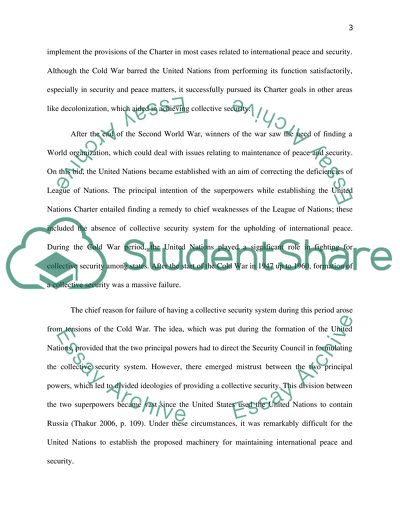Cite this document
(“Collective Security Systems during and after the Cold War Essay”, n.d.)
Retrieved from https://studentshare.org/history/1453768-assess-the-understanding-of-collective-security
Retrieved from https://studentshare.org/history/1453768-assess-the-understanding-of-collective-security
(Collective Security Systems During and After the Cold War Essay)
https://studentshare.org/history/1453768-assess-the-understanding-of-collective-security.
https://studentshare.org/history/1453768-assess-the-understanding-of-collective-security.
“Collective Security Systems During and After the Cold War Essay”, n.d. https://studentshare.org/history/1453768-assess-the-understanding-of-collective-security.


